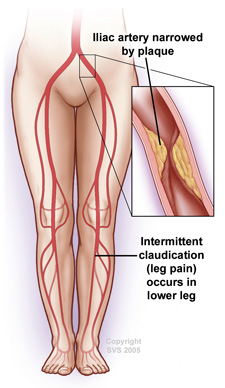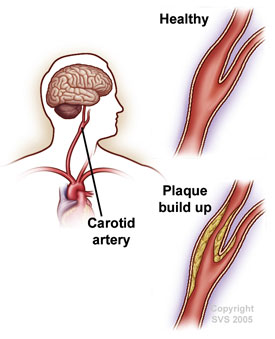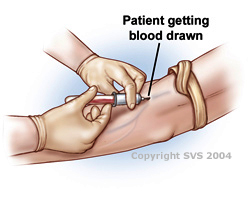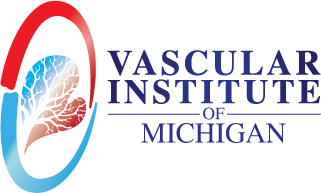Hyperlipidemia
What is Hyperlipidemia
Lipid is the scientific term for fats in the blood. At proper levels, lipids perform important functions in your body, but can cause health problems if they are present in excess. The term hyperlipidemia means high lipid levels. Hyperlipidemia includes several conditions, but it usually means that you have high cholesterol and high triglyceride levels.

High lipid levels can speed up a process called atherosclerosis, or hardening of the arteries. Your arteries are normally smooth and unobstructed on the inside, but as you age, a sticky substance called plaque forms in the walls of your arteries. Plaque is made of lipids and other materials circulating in your blood. As more plaque builds up, your arteries can narrow and stiffen. Eventually, enough plaque may build up to reduce blood flow through your arteries.
Atherosclerosis increases your risk of heart disease, stroke, and other vascular diseases. Fortunately, you may be able to reduce high lipid levels and, therefore, prevent or slow the progression of atherosclerosis. Lifestyle changes like exercising and eating a healthy diet can also lower your lipid levels and are often the first step in treatment.


What are the symptoms?
Hyperlipidemia by itself does not cause any symptoms.
What causes hyperlipidemia?
Most hyperlipidemia is caused by lifestyle habits or treatable medical conditions. Lifestyle contributors include obesity, not exercising, and smoking. Conditions that cause hyperlipidemia include diabetes, kidney disease, pregnancy, and an underactive thyroid gland.
You can also inherit hyperlipidemia. The cause may be genetic if you have a normal body weight and other members of your family have hyperlipidemia.
You have a greater chance of developing hyperlipidemia if you are a man older than age 45 or a woman older than age 55. If a close relative had early heart disease (father or brother affected before age 55, mother or sister affected before age 65), you also have an increased risk.
What tests will I need?

Because hyperlipidemia usually doesn't cause symptoms, you will need a blood test for a diagnosis. The National Cholesterol Education Program recommends that people get this test every 5 years after age 20.
Your blood test will show your physician the levels of different lipids in your blood. Your physician will compare your results to established ranges. The ranges help your physician diagnose hyperlipidemia and then decide whether you will need lifestyle modification, medical treatment, or both as treatments. Your physician will also determine whether you might have atherosclerosis or other risk factors for heart disease. The more risk factors for heart disease you have, the more aggressively your physician will treat hyperlipidemia.
Most blood tests measure levels of LDL (sometimes called "bad") cholesterol, HDL (sometimes called "good") cholesterol, total cholesterol (LDL plus HDL), and triglycerides. To have a low risk of heart disease, your desirable lipid levels are:
- LDL less than 130 mg/dL
- HDL greater than 40 mg/dL (men) or 50 mg/dL (women)
- Total cholesterol less than 200 mg/dL
- Triglycerides less than 200 mg/dL
Some experts believe that even lower cholesterol and triglyceride levels may be desirable.
How is hyperlipidemia treated?
Your treatment will depend on your lipid levels, your heart disease risk factors, and your general health. As a first step, your physician may recommend the lifestyle changes discussed later in this article.
Your physician's goal in treating you is to lower your LDL cholesterol. If lifestyle changes have not lowered your LDL, or if your physician decides that you are at risk for heart disease and you need stronger treatment than lifestyle changes, medications can help. In general, men older than age 35 and post-menopausal women are candidates for lipid-lowering medications.
Lipid-lowering medications include:
- Statin drugs, which prevent your liver from manufacturing cholesterol
- Bile acid sequestrants, which prevent your body from reabsorbing the cholesterol in bile. Bile is a liquid secreted into your small intestine that helps you digest dietary fats
- Fibrates
- Niacin (vitamin B3)
What can I do to stay healthy?
Physicians usually recommend making changes in your diet and exercise habits called therapeutic lifestyle changes (TLC). TLC can lower total cholesterol by 10 to 20 percent in some people. More commonly, however, people with hyperlipidemia experience a 2 to 6 percent reduction from TLC.
A major part of TLC is changing your diet. Your physician may recommend changes such as:
- Reducing your saturated fat intake to 7 percent of your daily calories
- Reducing your total fat intake to 25 to 35 percent of your daily calories
- Limiting your dietary cholesterol to less than 200 mg per day
- Eating 20 to 30 g a day of soluble fiber, which is found in oats, peas, beans, and certain fruits
- Increasing your intake of plant stanols or sterols, substances found in nuts, vegetable oils, corn and rice, to 2 to 3 g daily
Other foods that can help control cholesterol include cold-water fish, such as mackerel, sardines, and salmon. These fish contain omega-3 fatty acids that may lower triglycerides. Soybeans found in tofu, soy nuts and many meat substitutes contain a powerful antioxidant that can lower LDL.
A supplement known as psyllium can help you increase your soluble fiber intake. Made from seed grain husks, psyllium helps absorb water and cholesterol from your intestines and may improve the ratio of HDL to LDL.
Excess weight can decrease your HDL cholesterol, and losing excess weight can lower your LDL levels. Your physician will help you decide how much weight you need to lose. One consideration, though, is body shape. If you carry extra weight around the middle of your body, you have a greater chance of heart disease than if your weight clusters around your hips, thighs, and bottom.
Exercise makes up another component of TLC. Your physician will recommend an exercise program, such as walking briskly for 20 to 30 minutes most days of the week. Exercise can help you lose or maintain weight, relieve stress, raise HDL, and lower triglycerides and LDL. Make sure to talk with your physician before starting any exercise program and gradually increase how long and how often you exercise.
If you smoke, you should quit immediately, especially after finding out you have hyperlipidemia. Smoking can lower HDL, narrow your blood vessels, and injure your blood vessel walls. All of these effects can speed hardening of the arteries.

